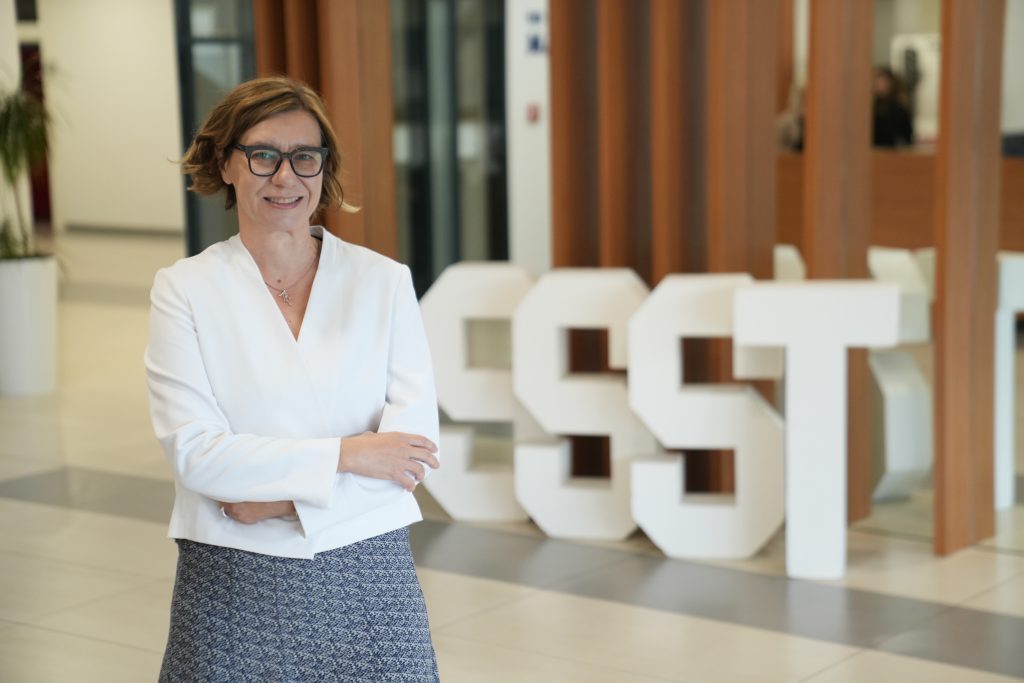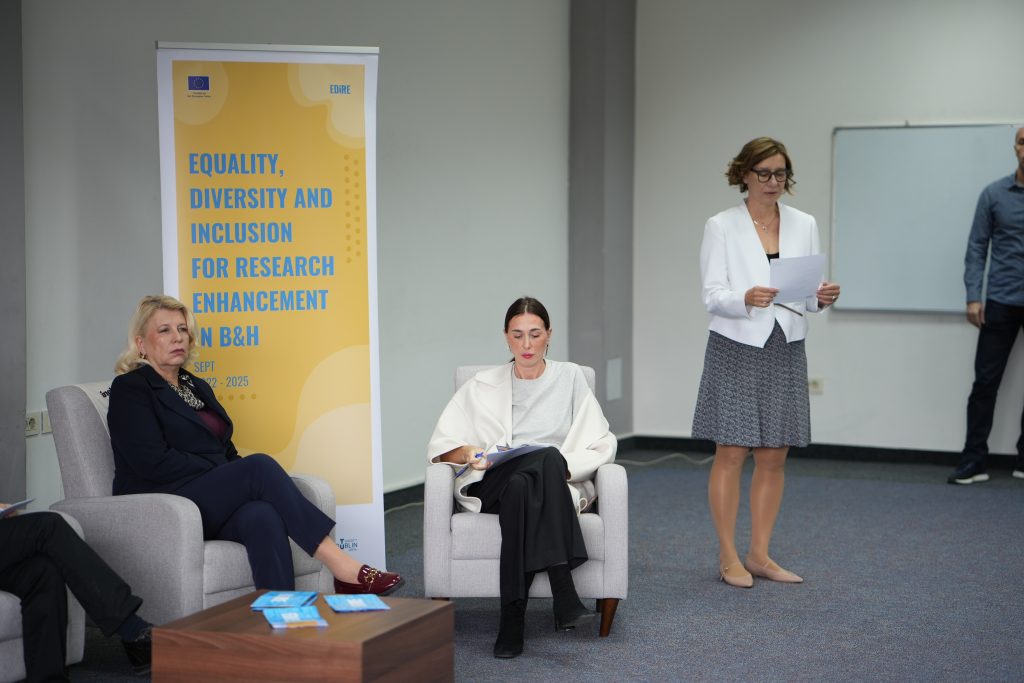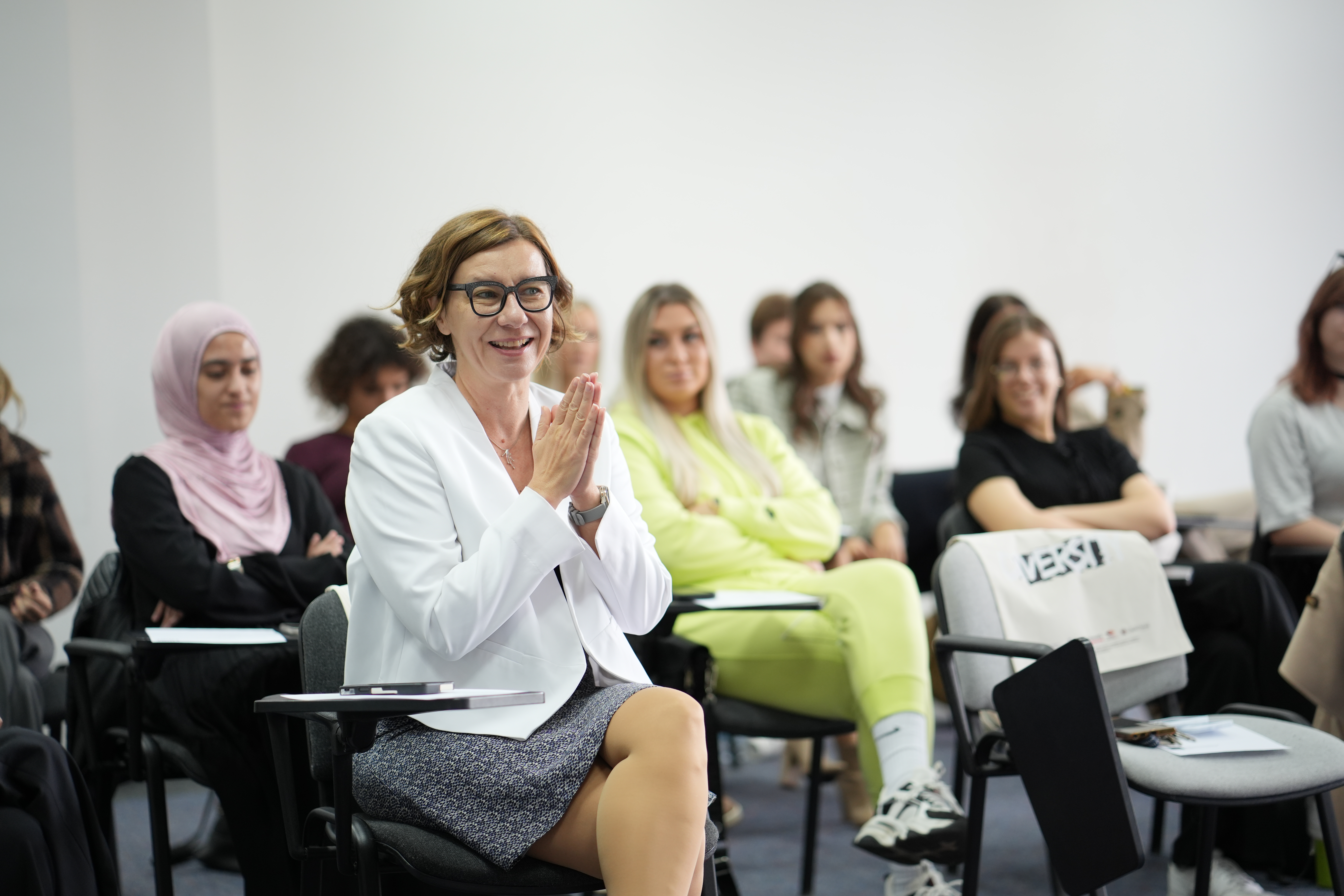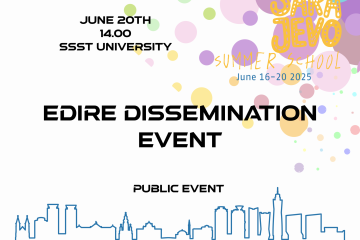by Ljepota & Zdravlje | 31.10.2025 – translated in English
Original link: https://www.ljepotaizdravlje.ba/ljz-preporuke/zene-u-nauci-projekat-edire
Learn how the EDIRE project and Prof. Dr. Jasminka Hasić Telalović are reshaping science in BiH — through equality, inclusion and inspiration.
In the world of science, gender equality is still insufficiently achieved, though it remains an extremely important topic. While women in Bosnia and Herzegovina make up the majority among university graduates, their numbers decrease in higher academic and research positions.
“Gender equality is the path to progress” – Prof. Dr. Jasminka Hasić Telalović and the EDIRE project
Projects such as EDIRE (Equality, Diversity and Inclusion for Research Enhancement) represent a turning point in the fight for women’s equality. This European project, which has been carried out over the past three years in BiH, brought concrete tools, policies and inspiration for real change within the academic community.
We speak with Prof. Dr. Jasminka Hasić Telalović, coordinator of the Horizon Europe project, a university professor and advocate for gender equality in academia and research.
To begin, could you briefly introduce the EDIRE project and your role in it?
EDIRE is a European project that aimed to improve gender equality, equity and inclusion in research institutions in BiH. Over three years of work, we developed gender equality plans for universities and institutes, organised trainings, public events and initiated important conversations about change within the academic community — all with the goal of improving scientific-research work and harmonising BiH with good university practices in the European Union.
As project coordinator, I can say this was a new experience — we were among the first in the country to have the opportunity to coordinate a Horizon Europe project. In the consortium were universities from Spain, Italy, Ireland and France who helped the University of Sarajevo School of Science and Technology (SSST) become a leader in promoting and enhancing EDI (Equality, Diversity & Inclusion) components in scientific-research work.
Which project activities would you highlight as most significant?
As part of project activities, we did a lot to build the capacities of SSST staff, and also to actively connect with the Western Balkans using practices from European universities. We created recommendations for embedding EDI components into scientific-research practices, and also developed an institutional Office for Project Support which is ready to open doors to many European projects that use EDI components.
During the project, we organised two summer schools with over 100 young researchers from partner universities who together researched and sought answers to questions about equality, diversity and inclusion. I am especially pleased that one of the schools took place in Sarajevo, and that young researchers from various scientific fields could become familiar with the special diversities Bosnia and Herzegovina brings to European society. Within the project activities dozens of academic exchanges/mobilities were carried out among partner universities, and memoranda of cooperation were signed, which will continue after the project’s end. The final event of the project held in October showed that the changes are not only possible, but already visible in practice.


When we speak about gender equality in science here, where do we currently stand?
We have a large number of talented and educated women who graduate from colleges and doctoral studies, which is great. However, in leadership positions and generally in decision-making roles, women are still in the minority. That isn’t because they lack knowledge or ambition, but because they face invisible yet deeply rooted obstacles — from societal expectations to institutional practices that are not sufficiently flexible and inclusive.
Society has reached a level where we cannot view gender equality purely as the role of women in society, but as a societal issue which affects all of us and society as a whole. A central part of this must be the promotion of diversity and inclusion, which should become everyday components in all research hypotheses and results. When we incorporate all of this, we will obtain much better and more complete solutions to societal problems.
What can institutions concretely do to change this?
The first step is to acknowledge that the problem exists, and the second is to act systemically. Institutions need to adopt and consistently implement clear gender equality policies, introduce procedures for protection against discrimination, promote work-life balance, and include a gender perspective in teaching and research.
These are not “side issues”, but key elements of the quality of every academic institution. And all of the above is achieved by introducing gender equality plans and actively implementing them with well-planned and responsible gender budgeting.
Why is it important that the broader public understands the significance of gender equality in science?
Because science shapes our everyday life — from healthcare and education to technology and public policies. If half of the population is not equally included, we lose enormous potential for innovation, a fairer society and faster development. Gender equality in science means better ideas, broader perspectives and higher quality results that benefit everyone.
What role do young people, especially young women, play in all of this?
They are crucial for change. Young people bring new energy and are not afraid to ask questions. If from the start we empower them, connect them with mentors and give them space to grow, they can be the carriers of system transformation. Young women in particular need support and role models who will show them that their voice is equally important and strong, and that they can break some of the barriers that currently exist, and that they can build their career in a fairer and less arduous way.
The EDIRE project is finished — what’s next?
The conclusion of the project is in fact the beginning of a new phase. The institutions that participated now independently continue implementing and upgrading project activities through various forms, and also with some other partner institutions. We continue to provide support, monitor results and advocate for the integration of EDI components in all areas of science. It is important that this does not remain a one-time project but becomes a process that lasts and grows.
Lastly, what message would you send to our readers?
Human rights are not negotiable, they are fought for, they are built upon and mutual support is key.
— Aida Olević Maljević, PR



